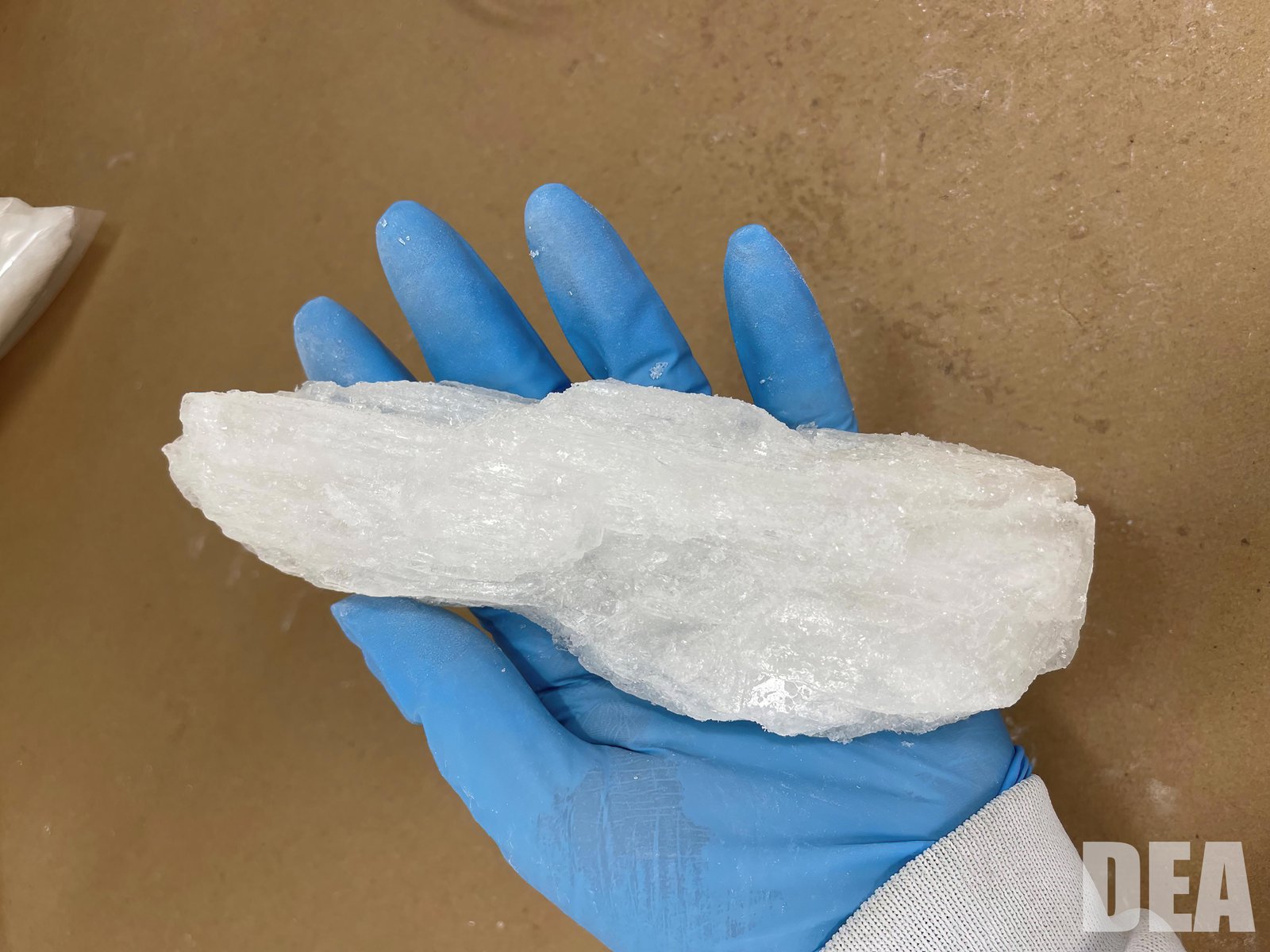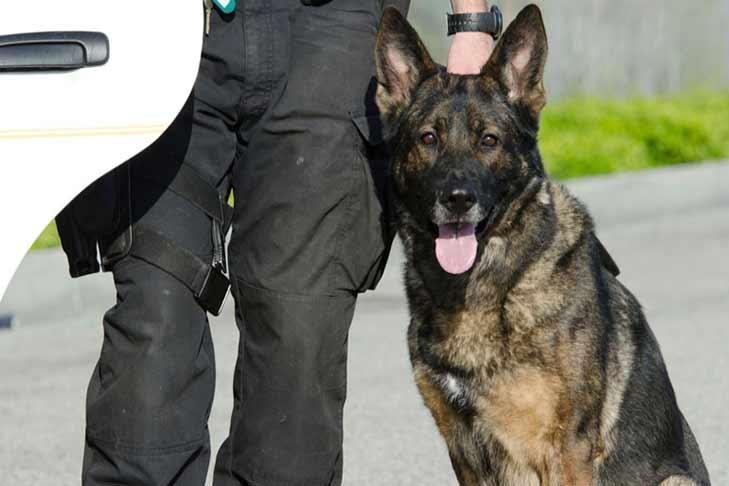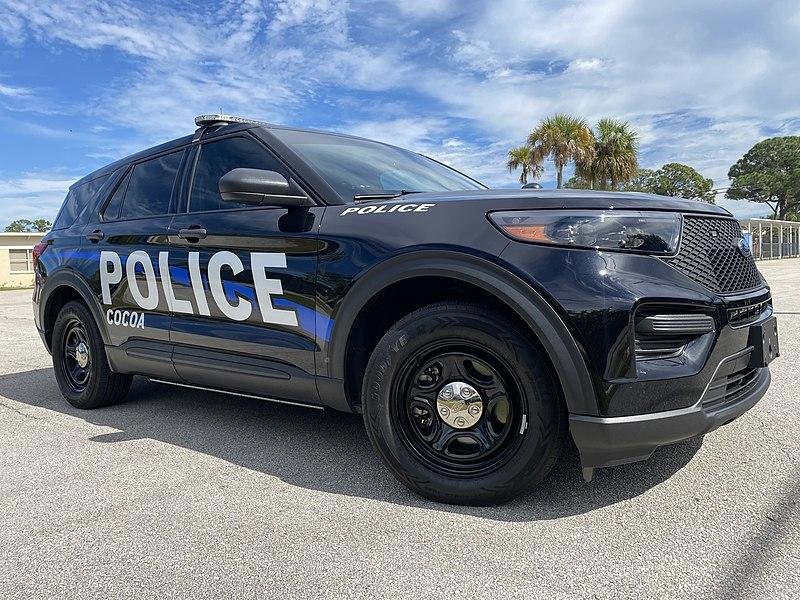In the ever-evolving landscape of law enforcement, the bond between humans and canines is a vital asset, showcasing how teamwork can lead to significant breakthroughs in public safety. This was made abundantly clear when Cocoa Police K-9 Maverick, a trained narcotics detection dog, played an instrumental role in a recent operation that resulted in the seizure of illegal drugs, including methamphetamine and fentanyl. As officers grapple with the increasing complexities of drug-related offenses, Maverick’s keen sense of smell and unwavering dedication highlight not just the capabilities of police working dogs, but also the ongoing fight against the insidious spread of drugs in communities. Join us as we delve into this remarkable incident, celebrating the contribution of a canine hero and the law enforcement professionals committed to making a difference.
The Role of K-9 Units in Modern Drug Enforcement
The integration of K-9 units in law enforcement has profoundly transformed the landscape of drug enforcement in recent years. Trained in various specialized skills, these canine officers, like Maverick, play a crucial role in detecting illicit substances that may be concealed or hidden in vehicles, packages, and even on suspects. Through their keen sense of smell, which is estimated to be 10,000 to 100,000 times more sensitive than that of humans, K-9s can accurately locate narcotics such as methamphetamine and fentanyl. Their presence not only enhances the efficiency of drug busts but also instills a sense of deterrence among criminals, knowing that such skilled animals are part of the enforcement team.
K-9 units provide multifaceted support in drug enforcement operations. Key attributes include:
- Search Capabilities: Dogs can cover large areas quickly, making them ideal for thorough searches during traffic stops or raids.
- Behavioral Detection: K-9s are trained to recognize potential threats through behavioral cues and changes in body language of suspects.
- Community Relations: These units often participate in local events, building positive relationships between law enforcement and community members.
The effectiveness of units like Maverick can be further highlighted in statistics:
| Type of Drug | Percentage Detected |
|---|---|
| Methamphetamine | 85% |
| Fentanyl | 95% |
| Cocaine | 90% |

Understanding the Dangers of Meth and Fentanyl in Communities
The escalating prevalence of methamphetamines and fentanyl in our communities presents a grave challenge. As law enforcement agencies like Cocoa Police work tirelessly to combat this crisis, the dangers associated with these substances cannot be overstated. Both meth and fentanyl contribute to a cycle of addiction that devastates families and overwhelms local resources, leading to increased crime rates and deteriorating community health. Methamphetamine is a powerful stimulant that affects the central nervous system, bringing about dangerous behaviors and health complications. Meanwhile, the synthetic opioid fentanyl, often mixed with other drugs without users’ knowledge, can lead to fatal overdoses even in minuscule amounts.
The impact of these drugs is not limited to the users themselves; entire communities suffer the consequences. Key risks associated with the distribution and use of meth and fentanyl include:
- Increased Crime: Drug possession and trafficking can lead to higher rates of theft, violence, and other criminal activities.
- Health Crisis: The medical costs associated with addiction, overdoses, and related health issues can overwhelm local healthcare systems.
- Family Strain: Addiction leads to fractured relationships, financial struggles, and emotional distress within families.
| Substance | Effects | Community Impact |
|---|---|---|
| Methamphetamine | Increased energy, paranoia, aggression | Discourages local businesses; strain on law enforcement |
| Fentanyl | Relaxation, euphoria, overdose risk | Overwhelmed emergency services; increased mortality rates |

Training and Support for Canine Officers in Law Enforcement
The success of canine officers like Maverick in law enforcement is heavily dependent on rigorous training and ongoing support. Each K-9 unit undergoes comprehensive training programs designed to strengthen their unique abilities and bond with their human partners. This training encompasses:
- Obedience Training: Ensuring that the K-9 responds promptly to commands.
- Detection Skills: Teaching dogs to recognize and signal the presence of narcotics, explosives, and other contraband.
- Search and Rescue Exercises: Training them to locate missing persons or objects in various environments.
Moreover, continuous support and education are paramount for maintaining the efficacy of K-9 units. Regular refresher courses and workshops help handlers stay updated on the latest techniques and technologies. For instance, proactive psychological support is essential to address the mental well-being of the K-9s and their handlers. A well-rounded approach to training and support ensures that these canine officers remain effective assets in combating crime, ultimately contributing to safer communities.

Best Practices for Collaboration between Police and Community in Drug Prevention
Effective collaboration between law enforcement and the community plays a pivotal role in tackling drug-related issues. By fostering a trusting relationship, police can serve as facilitators in education and prevention initiatives. Engaging in community dialogues empowers citizens to voice their concerns, share information, and propose innovative solutions. These partnerships encourage the implementation of proactive measures, such as neighborhood watch programs and school-based education on the dangers of drug abuse. Additionally, law enforcement should prioritize transparency and accountability, ensuring that community members feel involved in the decision-making processes concerning their safety.
Strategically planned events can strengthen the bond between police and the community, creating a sense of shared responsibility in drug prevention. Consider hosting activities like community forums, drug awareness workshops, and family-friendly events that highlight the importance of prevention. Furthermore, providing resources through community centers and local organizations allows families to access support and education more easily. The creation of mutually beneficial relationships with local businesses can also amplify outreach efforts, ensuring that vital information reaches a broader audience. By cultivating these connections, communities can build resilience against drug-related issues, ultimately leading to safer and healthier environments.
Q&A
Q&A: Cocoa Police K-9 Maverick Aids in Drug Bust
Q: What was the main event that Cocoa Police K-9 Maverick was involved in?
A: K-9 Maverick played a crucial role in the apprehension of a driver found in possession of methamphetamine and fentanyl during a recent traffic stop conducted by Cocoa Police.
Q: How did K-9 Maverick contribute to the operation?
A: Maverick, trained in narcotics detection, alerted officers to the presence of illegal substances in the vehicle, leading to further investigation and the eventual discovery of the drugs.
Q: What were the substances found in the driver’s possession?
A: Officers discovered significant quantities of both methamphetamine and fentanyl, potent substances that pose severe risks to public safety and health.
Q: Why is K-9 Maverick considered an asset to the Cocoa Police Department?
A: Mavericks skills in drug detection enhance the department’s capabilities to combat drug-related crime, demonstrating the effectiveness of K-9 units in law enforcement operations.
Q: What measures are being taken to address issues related to fentanyl in the community?
A: The Cocoa Police Department, alongside other law enforcement agencies, is actively working to raise awareness about the dangers of fentanyl, while also enhancing training and resources for officers to combat drug trafficking.
Q: How does the community feel about the work done by K-9 Maverick and the Cocoa Police Department?
A: The community largely supports the efforts of the Cocoa Police Department and appreciates the role of K-9 units like Maverick in helping to maintain safety and fight against drug-related crime.
Q: Are there any further actions planned following this incident?
A: Following this successful operation, Cocoa Police are expected to continue their proactive approach in monitoring and disrupting drug-related activities, ensuring that officers and K-9 units remain vigilant in their efforts.
Q: What message does this incident convey to potential offenders?
A: This incident serves as a strong reminder that law enforcement is actively working to combat drug offenses, and with the assistance of trained K-9 units like Maverick, offenders may face serious consequences if they engage in illegal activities.
In Conclusion
In the ever-watchful arena of law enforcement, the bond between humans and their K-9 counterparts has proven to be an invaluable asset in the fight against drug trafficking and crime. The recent success of Cocoa Police K-9 Maverick serves as a poignant reminder of how these dedicated animals contribute to public safety and community well-being. In this particular case, Maverick’s keen sense of smell and unwavering allegiance aided officers in apprehending a suspect in possession of methamphetamine and fentanyl, two dangerous substances that pose significant threats to our communities.
As we reflect on Maverick’s achievements, it becomes clear that the effectiveness of K-9 units extends beyond mere statistics; they symbolize the harmony of intuition, training, and instinct. Each successful intervention highlights the critical role these dogs play in the larger narrative of law enforcement, reminding us that vigilance is key in cultivating safe spaces for all. As Cocoa’s finest continue their mission, one can only hope that Maverick’s story inspires further collaboration and innovation in the fight against drugs and the various challenges faced by law enforcement today.

